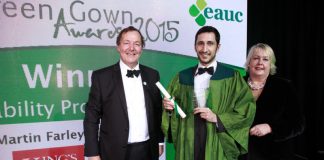Welcome! Log into your account
Recover your password
EDITOR PICKS
Events
5-6 October: AURIL conference, Bristol
This conference will explore how universities are using their global networks and partners to achieve more far-reaching knowledge exchange impacts and create new international business partnerships in other regions of the world.
10 October: Higher education conference and exhibition, London
This year’s event will tackle the challenges and opportunities that come with increased competition and choice in the sector off the back of momentous higher education reforms. Delegates will gain an exclusive introduction to the Office for Students, learn how to establish their institution as an international brand, debate the drive for digital in the sector and identify ways to enhance the student experience.





